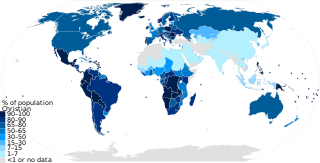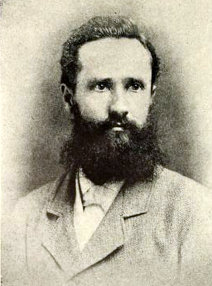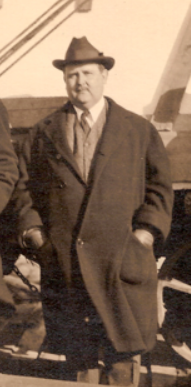Related Research Articles

Christianity is an Abrahamic monotheistic religion based on the life and teachings of Jesus of Nazareth. It is the world's largest and most widespread religion with roughly 2.4 billion followers representing one-third of the global population. Its adherents, known as Christians, are estimated to make up a majority of the population in 157 countries and territories, and believe that Jesus is the Son of God, whose coming as the Messiah was prophesied in the Hebrew Bible and chronicled in the New Testament.

Christendom historically refers to the Christian states, Christian empires, Christian-majority countries and the countries in which Christianity dominates, prevails, or that it is culturally or historically intertwined with.

Mary Baker Eddy was an American religious leader and author who founded The Church of Christ, Scientist, in New England in 1879. She also founded The Christian Science Monitor in 1908, and three religious magazines: the Christian Science Sentinel, The Christian Science Journal, and The Herald of Christian Science. She wrote numerous books and articles, the most notable of which were Science and Health with Key to the Scriptures and Manual of The Mother Church. Other works were edited posthumously into the Prose Works Other than Science and Health.

Christian Science is a set of beliefs and practices which are associated with members of the Church of Christ, Scientist. Adherents are commonly known as Christian Scientists or students of Christian Science, and the church is sometimes informally known as the Christian Science church. It was founded in 19th-century New England by Mary Baker Eddy, who wrote the 1875 book Science and Health with Key to the Scriptures, which outlined the theology of Christian Science. The book became Christian Science's central text, along with the Bible, and by 2001 had sold over nine million copies.
A Christian Science practitioner is an individual who prays for others according to the teachings of Christian Science. Treatment is non-medical, rather it is based on the Bible and the Christian Science textbook, Science and Health with Key to the Scriptures (1875) by Mary Baker Eddy (1821–1910), who said she discovered Christian Science in 1866 and founded the Christian Science church in 1879. According to the church, Christian Science practitioners address physical conditions, as well as relationship or financial difficulties and any other problem or crisis. Despite the non-medical nature of their practice, Christian Science practitioners were aggressively prosecuted in the late 19th century by newly established state medical societies across the United States. Most state courts dismissed these actions because the courts ruled that they did not practice medicine. Practitioners are either "listed" or "unlisted," a designation that refers to a form of international accreditation maintained by The Mother Church, in Boston, Massachusetts. "Listed" practitioners are included in the directory of Christian Science practitioners on the church website, and printed in the Christian Science Journal.
Robert Arthur Peel was a Christian Science historian and writer on religious and ecumenical topics. A Christian Scientist for over 70 years, Peel wrote editorials for the Christian Science Monitor, a publication owned by the Church of Christ, Scientist. He was also a counsellor for the church's Committee on Publication, set up by Mary Baker Eddy (1821–1910), the religion's founder, to protect her own and the church's reputation.

The Religious Science movement, or Science of Mind, was established in 1926 by Ernest Holmes and is a spiritual, philosophical and metaphysical religious movement within the New Thought movement. In general, the term "Science of Mind" applies to the teachings, while the term "Religious Science" applies to the organizations. However, adherents often use the terms interchangeably.
Essays and Reviews, edited by John William Parker, published in March 1860, is a broad-church volume of seven essays on Christianity. The topics covered the biblical research of the German critics, the evidence for Christianity, religious thought in England, and the cosmology of Genesis.
The New Thought movement is a spiritual movement that coalesced in the United States in the early 19th century. New Thought was seen by its adherents as succeeding "ancient thought", accumulated wisdom and philosophy from a variety of origins, such as Ancient Greek, Roman, Egyptian, Chinese, Taoist, Vedic, Hindu, and Buddhist cultures and their related belief systems, primarily regarding the interaction among thought, belief, consciousness in the human mind, and the effects of these within and beyond the human mind. Though no direct line of transmission is traceable, many adherents to New Thought in the 19th and 20th centuries claimed to be direct descendants of those systems.

Josephine Emma Curtis Hopkins was an American spiritual teacher and leader. She was involved in organizing the New Thought movement and was a theologian, teacher, writer, feminist, mystic, and healer; who taught and ordained hundreds of people, including notably many women. Hopkins was called the "teacher of teachers" and "mother of New Thought" because a number of her students went on to found their own churches or to become prominent in the New Thought Movement, including Charles and Myrtle Fillmore, founders of Unity Church; Ernest Holmes, founder of Religious Science; Malinda Cramer, founder of Divine Science; and H. Emilie Cady, author of Unity's cornerstone text Lessons in Truth. According to Charles S. Braden, Hopkins influenced the development of New Thought "more than any other single teacher", and modern scholars have identified Hopkins as the founder of New Thought.
Christian views on environmentalism vary among different Christians and Christian denominations.
Missionary work of the Catholic Church has often been undertaken outside the geographically defined parishes and dioceses by religious orders who have people and material resources to spare, and some of which specialized in missions. Eventually, parishes and dioceses would be organized worldwide, often after an intermediate phase as an apostolic prefecture or apostolic vicariate. Catholic mission has predominantly been carried out by the Latin Church in practice.

Christianity has been intricately intertwined with the history and formation of Western society. Throughout its long history, the Church has been a major source of social services like schooling and medical care; an inspiration for art, culture and philosophy; and an influential player in politics and religion. In various ways it has sought to affect Western attitudes towards vice and virtue in diverse fields. Festivals like Easter and Christmas are marked as public holidays; the Gregorian Calendar has been adopted internationally as the civil calendar; and the calendar itself is measured from an estimation of the date of Jesus's birth.

The Salem witchcraft trial of 1878, also known as the Ipswich witchcraft trial and the second Salem witch trial, was an American civil case held in May 1878 in Salem, Massachusetts, in which Lucretia L. S. Brown, an adherent of the Christian Science religion, accused fellow Christian Scientist Daniel H. Spofford of attempting to harm her through his "mesmeric" mental powers. By 1918, it was considered the last witchcraft trial held in the United States. The case garnered significant attention for its startling claims and the fact that it took place in Salem, the scene of the 1692 Salem witch trials. The judge dismissed the case.
The history of New Thought started in the 1830s, with roots in the United States and England. As a spiritual movement with roots in metaphysical beliefs, New Thought has helped guide a variety of social changes throughout the 19th, 20th, and into the 21st centuries. Psychologist and philosopher William James labelled New Thought "the religion of healthy-mindedness" in his study on religion and science, The Varieties of Religious Experience.

Christian culture generally includes all the cultural practices which have developed around the religion of Christianity. There are variations in the application of Christian beliefs in different cultures and traditions.

John Valentine Dittemore was director of The First Church of Christ, Scientist, the Christian Science church, in Boston from 1909 until 1919. Before that he was head of the church's Committee on Publication in New York, and a trustee for ten years of the estate of Mary Baker Eddy (1821–1910), the founder of the church. Dittemore is best known as the co-author, with Ernest Sutherland Bates, of Mary Baker Eddy: The Truth and the Tradition (1932).
Charles Samuel Braden was Professor and Chair of the Department of History and Literature of Religions at Northwestern University. He joined the faculty in 1926 and held the professorship from 1943; he was awarded emeritus status in 1954. Braden became known in particular for the study of new religious movements (NRM) and world religions. His Spirits in Rebellion: The Rise and Development of New Thought (1963) remains an important history of the New Thought family of NRMs.
Mary Baker Eddy: The Truth and the Tradition (1932) is a biography of Mary Baker Eddy by Ernest Sutherland Bates, an American academic, and John V. Dittemore, a former director of The First Church of Christ, Scientist.
References
- ↑ Ferguson, Charles W. (Autumn 1958). "Reviewed Work(s): Christian Science Today: Power, Policy, Practice by Charles S. Braden". Southwest Review. 43 (4): 368–369.